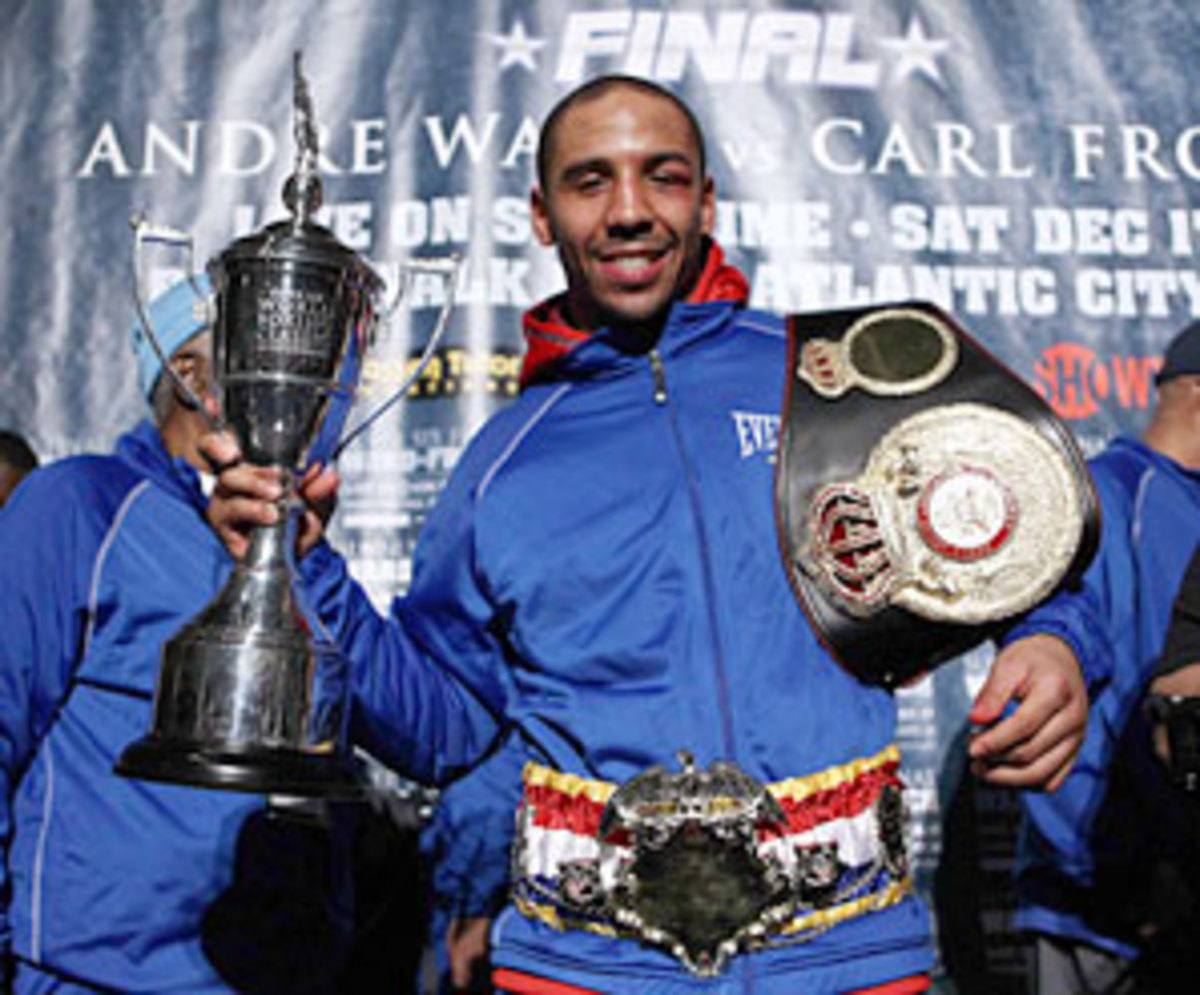Super middleweight kingpin Ward is SI.com's Fighter of the Year
It has been a banner year for Ward, one that has seen the Oakland-based boxer emerge as an heir apparent to the aging greats in the sport. In May he stepped in the ring with Arthur Abraham, a feared puncher who began Showtime's vaunted super middleweight tournament as one of the favorites. Over 12 lopsided rounds Ward made Abraham look silly, peppering him with combinations and forcing the fight on the inside, preventing Abraham from stepping back and extending on any power shots. The win advanced Ward to the finals against Froch, a gritty British brawler who came into the fight teeming with confidence. That confidence drained quickly when it became clear Froch, like so many others, could do little with Ward's speed and found that the punches that had rattled Abraham, Glen Johnson and Andre Dirrell earlier in the tournament just bounced off Ward's chiseled physique. "He's not a big puncher but physically, he's quite strong," Froch said. "I lost the fight for sure. I got beat by the better man."
• SI.com's Complete 2011 Boxing Awards
The goal of the Super Six was to brand a champion, to bring clarity to a division that has been muddled since Joe Calzaghe retired and elevate one of the fighters to the loftiest of levels. From the tournament's inception Ward embodied a Super Six fighter, supremely skilled but, outside of Oakland, largely anonymous. He's not a knockout artist, nor is he a brash talker. No, Ward is a quiet family man, loyal -- he has trained with Virgil Hunter since he was 9 years old -- and honest, always believing his talent would carry him to the top.
Alone, Ward might have struggled finding opportunities. His style isn't always fan-friendly and European fighters like Mikkel Kessler (whom Ward beat in 2009 to claim his first world title), Abraham and Froch would have, under normal circumstances, been unlikely to travel stateside to face him. It was the Super Six that brought them here, guaranteeing them lucrative paydays and premium U.S. television exposure in exchange for taking their act on the road.
Ward got the opportunities, and has taken advantage of them. His wins have been decisive, leaving no room for doubt. Ask people before the tournament who the No. 1 super middleweight was and the answers would vary. Ask them today, and there is only one.
Winning the Super Six is a high point for Ward, but it's unlikely to be his highest. He's a unified champion now, one with myriad opportunities. There is titleholder Lucian Bute, the moneyman in the division because of his drawing power in Canada. There is Kelly Pavlik, a popular American trying to reclaim a flagging career. If Ward moves up in weight, which he has said he is not opposed to, there are lucrative matchups with Jean Pascal or Bernard Hopkins. At 27, Ward is accomplished but, as he says, "I'm nowhere near my best."
"There are a lot of areas I'm still improving in," Ward said. "I'm not in my prime yet."
Scary, but probably true. Indeed, this has been a memorable year for Ward. But it likely won't be his last. With each win he gains more fans, his profile grows. There will come a time when Manny Pacquiao and Floyd Mayweather walk away, leaving a gaping void in the sport. Who knows if Ward will ever generate the same buzz. Mayweather and Pacquiao didn't become gold pay per view attractions until they fought Oscar De La Hoya, and there simply is no De La Hoya out there for Ward to fight. But the foundation of Mayweather and Pacquiao's popularity is their talent, and in that category Ward has proven he can measure up.





